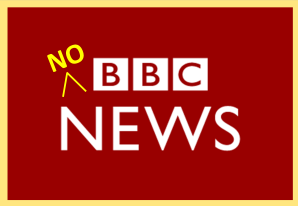 The Press Complaints Commission – a voluntary regulatory body for British newspapers and magazines, consisting of representatives of the major publishers, which putatively enforced the standards in the Editors’ Code of Practice – was set to be replaced after severe criticism for its ineffectiveness during the News of the World phone hacking affair.
The Press Complaints Commission – a voluntary regulatory body for British newspapers and magazines, consisting of representatives of the major publishers, which putatively enforced the standards in the Editors’ Code of Practice – was set to be replaced after severe criticism for its ineffectiveness during the News of the World phone hacking affair.
Critiques of the PCC – which included concerns that it was too close to the industry it was regulating, was toothless and had no legal powers – were detailed in recommendations made in the The Leveson Inquiry.
The new body, which can actually fine publications “in cases where failings are particularly serious and systemic”, is called the Independent Press Standards Organisation (IPSO). IPSO – led by Appeal Court judge Sir Alan Moses – and becomes active today (Sept. 8th). However, the Guardian (as well as The Independent, Financial Times and Financial Times) has thus far not signed on.
The Guardian, in an official editorial published on Sept. 6th, explained their decision:
On Monday, the old Press Complaints Commission will be wound up and a new body, the Independent Press Standards Organisation (Ipso), will open its doors. In some ways Ipso is an improvement on the old PCC which, it is now widely acknowledged, was not really a regulator at all and which fell flat on its face when confronted with truly serious transgressions. Ipso has attracted some strong lay board members and a notably independent chair in the retired court of appeal judge Sir Alan Moses. It will have powers to investigate and levy fines after evidence of persistent wrongdoing in a way the old PCC didn’t. But the way Ipso came into being has not been satisfactory
It is unsurprising, then, that there is still a considerable degree of public scepticism that Ipso is yet the credible answer to the questions posed by the year-long Leveson inquiry. The victims of press intrusion, as well as many significant academics, journalists, politicians, lawyers and…readers are suspending their endorsement while watching Sir Alan’s next moves. They will judge whether he can truly craft something that can command more general confidence. The Guardian, in common with the majority of what used to be called daily national broadsheet papers in the UK, is not signing up to Ipso at this stage; nor are several magazines or major new media players. This paper will wait to see whether Sir Alan succeeds in reforming some of the governance issues that still cause anxiety.
Then, the kicker:
In the meantime, we will reinforce our own system of complaints and mediation
The Guardian led the way in creating a meaningful mechanism for correcting and clarifying errors. We appointed the first truly independent readers’ editor in the UK 17 years ago and since then have had a regular prominent space every day for corrections as well as a weekly column in which the readers’ editor – who is appointed, and can only be dismissed, by the Scott Trust – can comment on issues and concerns raised by the public. There has also been an external ombudsman to whom the readers’ editor can refer substantial grievances, or matters concerning the Guardian’s journalistic integrity. The distinguished television executive John Willis will continue in this role – enhanced by the creation of a temporary review panel, with a further two external public figures soon to be appointed by the Scott Trust. This body will meet regularly to review the work of the readers’ editor alongside specific issues to do with the latter’s processes and decisions. In addition we are happy to consider arbitration of complaints where the readers’ editor and the Guardian’s legal team consider it to be appropriate.
In other words, the Guardian is in effect arguing that they don’t necessarily need an outside body to assure accuracy and abidance with the standards in the Editor’s Code of Practice.
Just think about this for a moment. The Guardian, a ‘liberal’ institution known for its belief that one of the most dangerous dynamics in democratic society is unchecked, unregulated power, believes that they are the exception to the principle of transparency and accountability.
One friend who read their op-ed wondered if the Guardian is now going to trust the police to decide which charges of abuse merit scrutiny, or if they’ll now grant banks, financial institutions and government agencies (especially British security agencies) a similar freedom to determine for themselves if they’ve violated the public trust?
Of course they won’t.
The global media group evidently believes that – unlike other institutions – it can be trusted to police itself!
What could possibly go wrong?!


